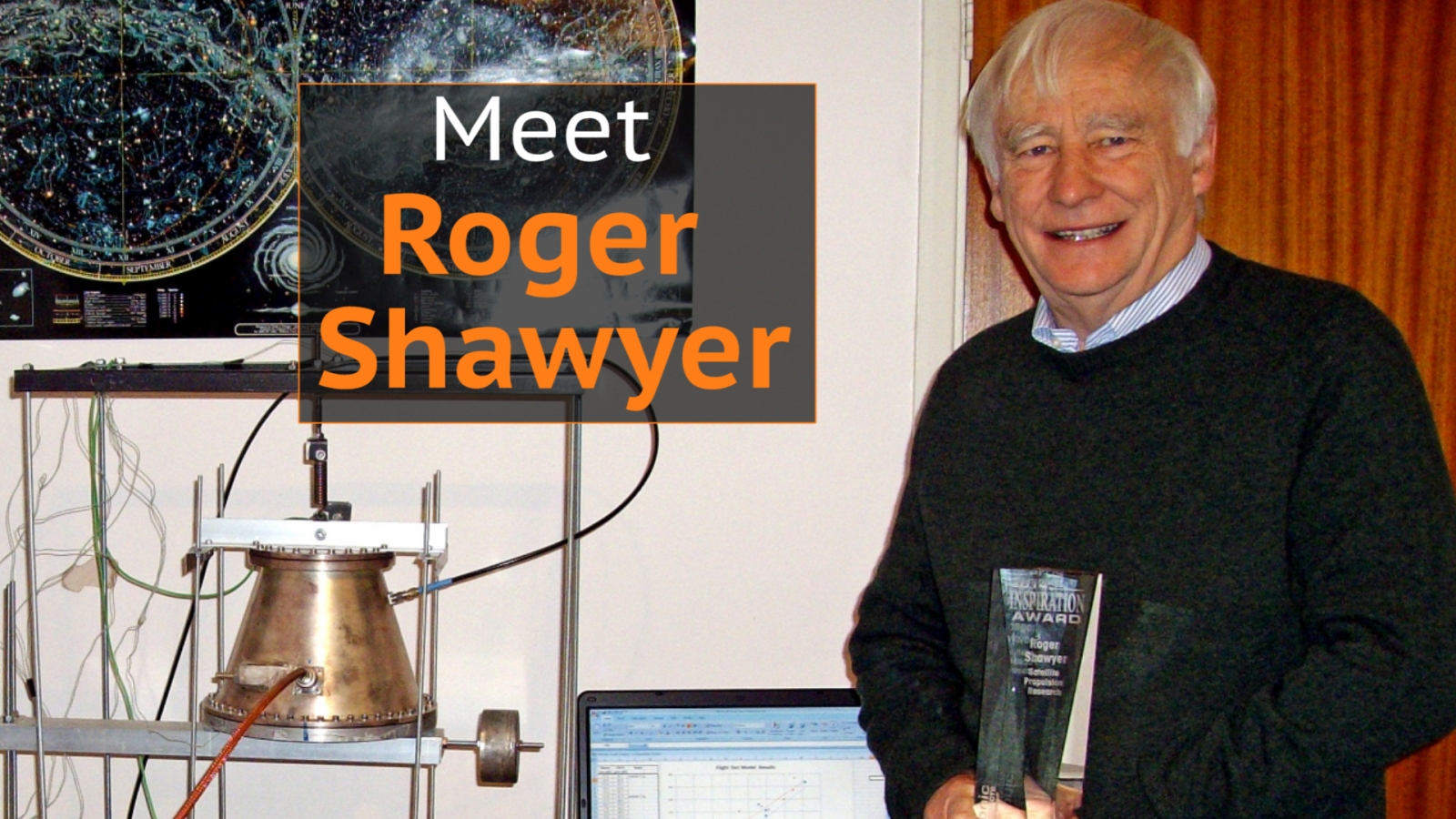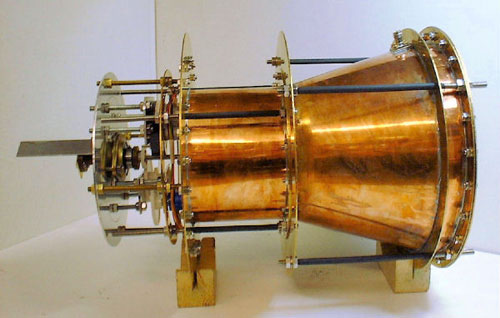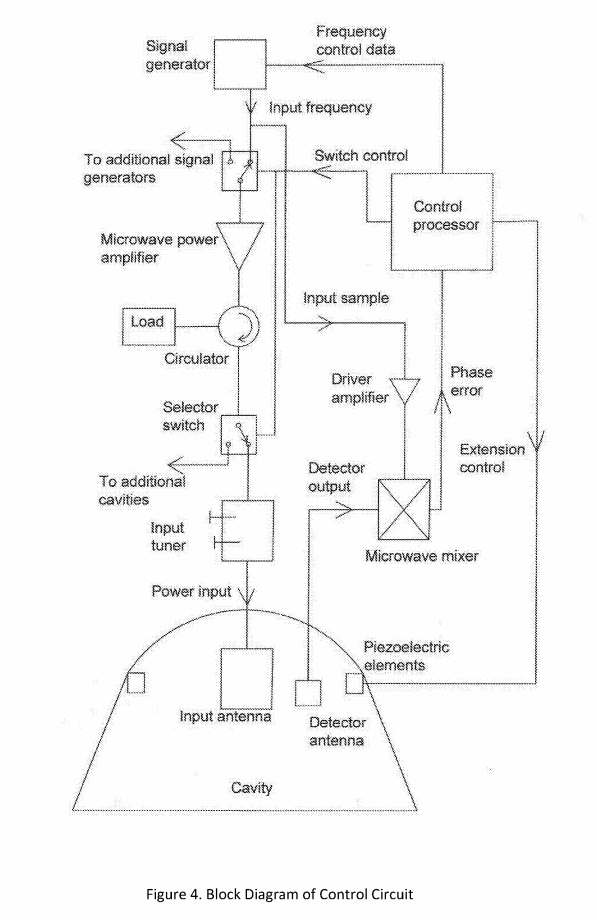A Patent for the Controversial & ‘Impossible’ Quantum
Space Engine (EM Drive) Was Just Made Public
A
month ago, we published an article about the Cannae-Drive, which was invented
by Guido Fetta, and tested by NASA over an eight day testing campaign
that took place in August of 2013. It’s also known as the EM drive. It showed
that a small amount of thrust was achieved inside a container without the use
of any fuel. The results were then presented at the 50th Joint Propulsion
Conference in Cleveland, Ohio.
You
can access the paper (titled “Numerical and Experimental Results for a Novel
Propulsion Technology Requiring no On-Board Propellant”) that was presented at
the conference here, and inventor Guido Fetta’s paper here.
2016
has been a huge year for the EM drive, primarily because it was recently
announced that it’s about to be tested in space, and NASA researchers reported
a successful 10-week trial of their EM drive prototype, which led to the
approval of Fetta being granted permission to test his own version in space.
Now,
even more recently, the latest patent application for the new kind of rocket
engine that generates thrust without any kind of exhaust or propellant was just
released by the U.K. Intellectual Property office by investor Roger Shawyer (source).
“The patent process is a very significant process, it’s
not like an academic peer review where everyone hides behind an anonymous
review, it’s all out in the open,” Shawer told
Marry-Ann Russon at the International Business Times.
He
went on to say that “this
is a proper, professional way of establishing prior ownership done by
professionals in the patent office, and in order to publish my patent
application, they had to first carry out a thorough examination of the physics
in order to establish that the invention does not contravene the laws of
physics.”
Utilizing
electromagnetic waves as fuel, the EM drive creates thrust by bouncing
microwave photons back and forth in a cone-shaped metal cavity.
Now,
Newton’s Third Law states that without exhaust you can’t produce thrust, or if
something needs an “equal and opposite reaction,” something needs to be coming
out of the back of the propulsion system to push it forward, and the EM drive
doesn’t have that.
It’s
called the law of conservation of momentum, but this invention taps into the ‘zero-point‘
field of energy/electromagnetic waves.
By
the way, the laws of physics need to be changed to account for the fact that
space is not empty.
Experiments
from a number of researchers from around the world and NASA have shown that it
can indeed produce thrust with enough power to propel a spacecraft.
This
has huge implications. Think about it—propulsion systems that require no fuel.
Apparently,
Shawyer is now working with a U.K. aerospace agency that will produce even more
thrust, greater than what NASA and other researchers have already observed (source).
This
is exciting because it basically proves that we have a limitless resource of energy to tap into and utilize for space travel This is currently the
biggest barrier for modern day space travel and exploration.
Science
needs to be careful and stray far from getting caught up in the grip of
scientific dogma. History has constantly shown us, especially within the realms
of science, that what we accept as real always changes at another point in
time. Our understanding and knowledge regarding the nature of our reality is
constantly changing.
“There is nothing new to be discovered
in physics now. All that remains is more and more precise measurement.” This
statement (worldview statement) was made by Lord Kelvin in 1900, which was
shattered five years later when Einstein published his paper on special
relativity.
Today,
engineers are inventing power generators that utilize these concepts, like Paramahamsa Tewari.
“These are not just fringe scientists with science
fiction ideas. They are mainstream ideas being published in mainstream physics
journals and being taken seriously by mainstream military and NASA type
funders. I’ve been taken out on aircraft carriers by the Navy and shown what it
is we have to replace if we have new energy sources to provide new fuel
methods.” – Dr. Harold E. Puthoff, director of the Institute for
Advanced Studies at Austin (source)
Invention Secrecy and the Problem With Patents
Did you know that invention secrecy is at an all time high? Did you know that the U.S. Government classifies over 500 million pages of documents each year? Justification for the mass classification of information is (apparently) done for the sake of “national security,” but as we know:
“The dangers of excessive and unwarranted concealment of
pertinent facts far outweigh the dangers that are cited to justify them. There
is a very grave danger that an announced need for an increased level of
security will be seized upon by those anxious to expand its meaning to the very
limits of censorship and concealment. That I do not tend to permit, so long as
it’s in my control.” – JFK (source)
The
U.S. Patent and Trademark Office is supposed to legally protect the
inventions of entrepreneurs and companies, some of whom have developed
groundbreaking technology. Unfortunately, it doesn’t work that way, as a
number of documents obtained via the Freedom of Information Act (FOIA) reveal
how the Patent Office has been using a secret system to withhold the approval
of some applications.
A
great example comes in the form of a 50-page document that was obtained
by Kilpatrick Towsend & Stockton, LLP, who commonly represent major
tech companies that include Apple, Google, and Twitter (to name a few). You can
view that entire document HERE.
The
program delaying patent applications is called the Sensitive Application
Warning System (SWAS). Usually, when an application is submitted for a patent
approval, it requires a couple of examiners who work with the Patent
office to go through their process of approval. This process usually takes
approximately 1 to 2 years, but applications that are filed in SAWS must
be approved by several people, and can be delayed for a number of years.
One
great example (out of many) of delayed patent applications comes from Dr.
Gerald F. Ross. He filed a patent application for a new invention he had
devised to defeat the jamming of electromagnetic transmissions at specified
frequencies. It was not until June 17, 2014 (almost 37 years later) that this
patent was granted (source).
According
to the Federation of American Scientists, a group of renowned scientists from
various fields that was founded by many of the Manhattan Project scientists who
wanted to prevent nuclear war, there were more than 5000 inventions that were
under secrecy orders at the end of Fiscal Year 2014 (source).
This
is all made possible by something called the “Invention Secrecy Act.” It was
written up in 1951 and states that patent applications on new inventions
can be subject to secrecy orders. These orders can restrict their publication
if government agencies believe that their disclosure would be harmful to
national security (source)(source).
As
mentioned earlier, “national security” has become an excuse and justification
for the classification of a large amount of information on a variety of topics
that the public is deliberately kept in the dark about. Apparently, many of
these projects and inventions go far above and beyond presidential knowledge.
“It is ironic that the U.S. should be fighting
monstrously expensive wars allegedly to bring democracy to those countries,
when it itself can no longer claim to be called a democracy when trillions, and
I mean thousands of billions of dollars, have been spent on projects which both
congress and the commander in chief know nothing about.” – Paul Hellyer,
Former Canadian Defence Minister (source)
We
don’t really know what other type of technologies are under restriction under
the Invention Secrecy Act, but a previous list from 1971 was obtained by
researcher Michael Ravnitzky. Most of the technology listed seems to be related
to various military applications. You can view that list HERE (source).
As Steven Aftergood from
the Federation of American Scientists reports:
“The 1971 list indicates that patents for solar
photovoltaic generators were subject to review and possible restriction if the
photovoltaics were more than 20% efficient. Energy conversion systems were
likewise subject to review and possible restriction if they offered conversion
efficiencies in excess of 70-80%” (source).
From Collective
Evolution @ http://www.collective-evolution.com/2016/10/17/a-patent-for-the-controversial-impossible-quantum-space-engine-em-drive-was-just-made-public/
The Intellectual Property Office has published Shawyer's application featuring novel superconducting end plates.

EmDrive Exclusive: Roger Shawyer confirms MoD and DoD are
interested in controversial space propulsion tech IBTimes UK
The patent, available here, describes a thruster that features a single flat superconducting plate on one end, while the other end is a unique shaped plate that is non-superconducting.
Shawyer told IBTimes UK that he submitted the patent for the next-generation microwave thrusters 18 months ago, and that the patent is significant as it is currently very difficult – not to mention expensive – to produce a shaped non-superconducting end plate, since it has to be mounted on a sapphire substrate.
"This is pretty significant because it enables you to easily manufacture these things, and we want to produce thousands of them," he said. "The patent makes the construction of a viable superconducting thruster easier, and it will produce a lot of thrust."
See http://www.ibtimes.co.uk/videos/embed/21144
2016: A big year for EmDrive

The
EmDrive created by Shawyer's space company Satellite Propulsion Research LtdRoger Shawyer, Satellite Propulsion
Research Ltd
How
the EmDrive works
The EmDrive is the invention of British scientist Roger Shawyer, who proposed in 1999 that based on the theory of special relativity, electricity converted into microwaves and fired within a truncated cone-shaped closed metal cavity causes the microwave particles to exert more force on the flat surface at the large end of the cone (i.e. there is less combined particle momentum at the narrow end due to a reduction in group particle velocity), thereby generating thrust.
His critics say that according to the law of conservation of momentum, his theory cannot work as in order for a thruster to gain momentum in one direction, a propellant must be expelled in the opposite direction, and the EmDrive is a closed system.
However, Shawyer claims that following fundamental physics involving the theory of special relativity, the EmDrive does in fact preserve the law of conservation of momentum and energy.
Whether the technology actually works, there is no denying that 2016 has been a big year for the EmDrive. In mid-September, a respected space propulsion funding body in the US held a conference that included half a day dedicated to discussions about the EmDrive, led by a number of physicists, engineers and researchers.
Just before this, the American Institute of Aeronautics and Astronautics (AIAA) confirmed that it had peer-reviewed and accepted a paper on the EmDrive by Nasa Eagleworks researchers, which will be published in December 2016.
The researchers first posted on the Nasa Spaceflight forum in April 2015 and in November said they had succeeded in achieving thrust with the microwave thruster they built, although they didn't know how. In March, the researchers claimed that the paper was going through peer review, although they didn't know when it would be published.
There has been a great deal of debate over whether the EmDrive actually works. Many academics in the international space community continue to believe that it is complete nonsense, as the technology violates the law of conservation of momentum, and thus our understanding of physics.
In the meantime, Roger Shawyer, the British engineer/scientist who invented the EmDrive concept in 1999, is working with an unnamed UK aerospace company to develop the second generation of EmDrive, which will produce thrust many orders of magnitude greater than that observed by Eagleworks or any other laboratory.
Millions of pounds at stake on this patent

A diagram explaining the control circuit within Roger
Shawyer's second generation superconducting thrusterUK
Intellectual Property Office
"There's millions of pounds at stake on this particular patent."
Shawyer has so far had four patents granted by the IPO – the first, GB2229865, was granted on 5 May 1993 and described the basic theory and construction of a cylindrical thruster with a shaped internal dielectric.
The second, GB2334761, granted on 21 March 2000, described the theory and construction of a tapered thruster with a cylindrical dielectric. This is essentially the same basic idea behind the NASA Eagleworks thruster that has been undergoing tests over the last two years.
The third patent, GB2399601, was granted on 13 March 2003, describing a second-generation EmDrive that uses no dielectric and employs superconducting technology to achieve high thrust.
Shawyer also has another patent still undergoing the patent review process – on 6 February 2013, the patent GB2493361 was published by the IPO, describing a thruster that uses shaped end plates and superconducting technology as a means of controlling the microwave input to maintain thrust under acceleration.
From
International Business Times @ http://www.ibtimes.co.uk/emdrive-roger-shawyer-patenting-new-design-next-gen-superconducting-thruster-1585982
Nassikas Reactionless Lorentz Thruster Project - Dr. Paul LaViolette
For more information about the Cannae drive see http://nexusilluminati.blogspot.com/search/label/cannae%20drive
For more information about electromagnetic propulsion see http://nexusilluminati.blogspot.com/search/label/electromagnetic%20propulsion
For more information about electromagnetic propulsion see http://nexusilluminati.blogspot.com/search/label/electromagnetic%20propulsion
- Scroll down
through ‘Older Posts’ at the end of each section
Do you LIKE this uniquely informative site?
A genuinely incapacitated invalid maintains, writes, edits,
researches, illustrates, moderates and publishes this website from a tiny cabin
in a remote forest.
Now that most people use ad blockers and view these posts
on phones and other mobile devices, sites like this earn an ever shrinking
pittance from advertising sponsorship.
This site needs your help.
Like what you see? Please give
anything you can -
Contribute any amount and receive at least one New Illuminati eBook!
(You can use a card securely if you don’t use Paypal)
Please click below -
And it costs nothing
to share this post on Social Media!
Dare to care and
share - YOU are our only advertisement!
Videos - https://youtu.be/FxRdNj0_8JU
For further enlightening
information enter a word or phrase into the random synchronistic search box @
the top left of http://nexusilluminati.blogspot.com
And see
New Illuminati – http://nexusilluminati.blogspot.com
New Illuminati on Facebook - https://www.facebook.com/the.new.illuminati
New Illuminati Youtube Channel - https://www.youtube.com/user/newilluminati/playlists
New Illuminati’s OWN Youtube Videos
-
New Illuminati on Google+ @ For
New Illuminati posts - https://plus.google.com/u/0/+RamAyana0/posts
New Illuminati on Twitter @ www.twitter.com/new_illuminati
New Illuminations –Art(icles) by
R. Ayana @ http://newilluminations.blogspot.com
The Her(m)etic Hermit - http://hermetic.blog.com
DISGRUNTLED SITE ADMINS PLEASE NOTE –
We provide
a live link to your original material on your site (and links via social
networking services) - which raises your ranking on search engines and helps
spread your info further!
This site
is published under Creative Commons (Attribution) CopyRIGHT (unless an
individual article or other item is declared otherwise by the copyright
holder). Reproduction for non-profit use is permitted & encouraged - if you
give attribution to the work & author and include all links in the original
(along with this or a similar notice).
Feel free
to make non-commercial hard (printed) or software copies or mirror sites - you
never know how long something will stay glued to the web – but remember
attribution!
If you
like what you see, please send a donation (no amount is too small or too large)
or leave a comment – and thanks for reading this far…
Live long
and prosper! Together we can create the best of all possible worlds…
From the New Illuminati – http://nexusilluminati.blogspot.com

Are the laws preventing these technologies from being mass produced controlled by big oil? Will we ever solve global warming before it is too late? The sixth extinction is upon us, my friends. Let us stop fiddling while Rome burns.
ReplyDelete